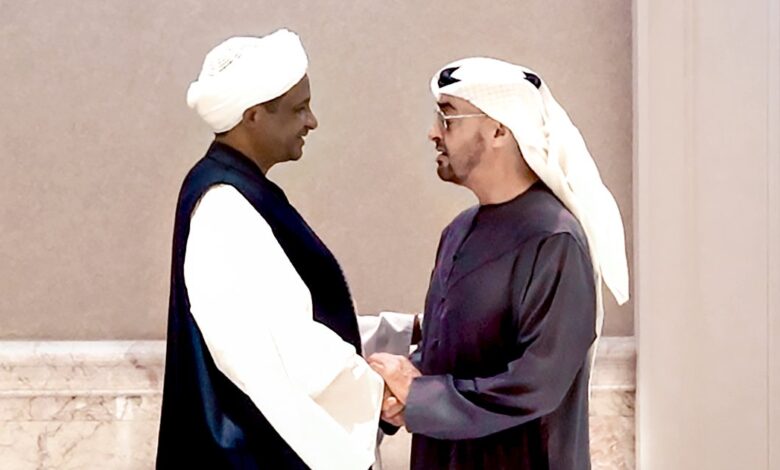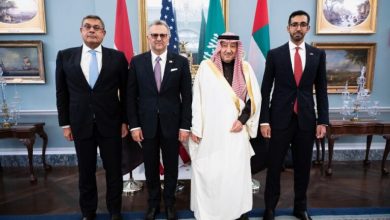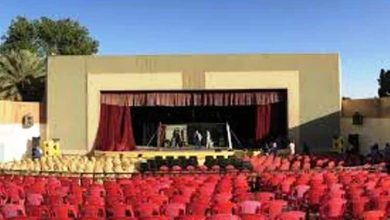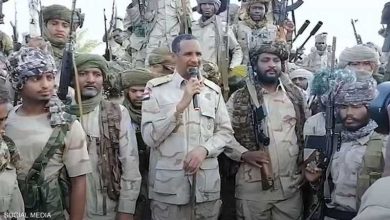Reports
UAE and the Rapid Support Forces… Opening Pandora’s Box of Evil (1-5)

Sudan Events – Agencies
In Greek mythology, Pandora’s Box is a container carried by Pandora that contained all the evils of humanity: greed, arrogance, slander, lying, envy, weakness, rudeness, and hope.
In Greek legends, after Prometheus stole fire, Zeus ordered his son Hephaestus to create the woman Pandora as part of the human punishment. Pandora was given many gifts from Aphrodite, Hermes, the Charites, and the Horae. Prometheus warned his brother Epimetheus not to accept any gifts from Zeus for fear of his retaliation, but Epimetheus did not listen and married Pandora, who possessed a box that Zeus gave her and instructed her not to open it. However, Pandora opened the box, and all the evils of humanity emerged from it.
Thus, just as Pandora unleashed all evils on humanity, every form of evil for the Sudanese has emerged from the UAE under the rule of Mohammed bin Zayed, which in his era transformed into Pandora’s Box of all evils towards Sudan and its people, as well as many other countries. The UAE’s unlimited support for the militia has become a major question on the world stage, with the fundamental question being why does the UAE do this, what does it want from Sudan, and why is it spending so generously? Through this series of episodes, we will reveal with concrete evidence all forms of support that the UAE provides to the militia, including weapons, vehicles, and even liaison officers handling the matter. We will also mention the complaints filed by Sudan against the UAE, the international evidence, UN Security Council reports, and reports from global news agencies proving the UAE’s support for the militia. We will delve deeper into the role of the UAE’s chief agent, a man who harbors all kinds of hatred against his own people, the former head of office of President Omar al-Bashir, a man holding multiple citizenships (Taha Al-Hussein).
Why does the UAE support Hemeti?
It seems that the alliance between Bin Zayed and the militia leader Hemeti goes beyond recruiting fighters. It extends to the “recruitment” of resources (gold, copper, and recently uranium). The militia has almost complete control over Sudan’s mining sector, which generates massive amounts of money, with only a small portion reaching the state’s treasury while the majority is smuggled abroad. The UAE seeks to dismantle the Sudanese army and replace it with a militia that owes absolute loyalty to them.
The Role of Taha
The planners of this project, headed by Taha Al-Hussein, the former head of office of Sudanese President Omar al-Bashir, started thinking about the matter along with advisors to Mohammed bin Zayed since the start of the “Decisive Storm” coalition in 2015 against the Houthis in Yemen. During that time, the Rapid Support Forces (RSF) were called in to replace Emirati forces, who had suffered heavy losses in Yemen, with many of their soldiers killed. This idea came from Taha Al-Hussein, who was close to Mohammed bin Zayed, to replace those forces with the RSF. Hemeti began making frequent trips to the UAE to meet with Bin Zayed’s advisors and with him directly. From that point, the relationship between “Mohammed and Mohammed” grew stronger and transformed into a form of mutual assistance, with Hemeti supporting Bin Zayed’s efforts in Yemen, and now Bin Zayed returning the favor by supporting Hemeti in Sudan. This was confirmed by the New York Times in a famous report where Bin Zayed justified his support for Hemeti when U.S. officials pressured him in a meeting with Vice President Kamala Harris.
The UAE-Rapid Support Forces relationship deepened after the ousting of Bashir in 2019. The UAE sent a joint delegation to offer support, led by Taha Al-Hussein, and the militia received more than 2,000 Toyota Land Cruiser vehicles, which were used in the massacre during the clearing of the Khartoum sit-in. They were also provided with armored vehicles and troop carriers. Hemeti later became a key player in Sudan’s power and financial system, supporting the UAE by sending more than 2,000 soldiers to Libya to fight alongside Khalifa Haftar, one of the UAE’s key allies.
Gold Partnership
There is information circulating about a significant partnership between Hemeti and prominent Emirati princes in Sudan’s gold mines. The UAE also aims to invest in agriculture in Darfur, Al-Fashaga, and Abu Hamad. To this end, it completed a deal for the Abu Hamama port to export produce from lands in the Nile River, Northern, Gedaref, and Darfur. This deal was later abandoned by the Sudanese government after the UAE’s direct involvement in supporting the militia. Studies also show the UAE’s intention to explore oil and minerals in the lands extending from the Zark region in Northern Darfur to the border triangle with Libya and Chad, where the U.S. company Chevron had previously explored for oil. There is believed to be huge oil reserves, in addition to gold and uranium mines in Wadi Attron, within the project’s scope. Many militia leaders own real estate and businesses in the UAE.
Intimidation and Coercion
To ensure the success of the militia’s war in Sudan, the UAE has utilized all its regional and international relationships, employing both coercion and bribery on various countries to fulfill its goals in Sudan. In January 2023, months before the war began, the UAE began sending mercenaries to the city of Geneina from three countries (Niger, Mali, and Chad), followed by additional groups from the Central African Republic and Libya.
Once the war broke out, the militia increased its support, utilizing the Um Jaras Airport (as mentioned earlier) as a supply and storage base. The situation later escalated to violations of Sudan’s airspace for evacuation and resupply operations through airports and landing strips in the Kordofan and Darfur states.
We will attempt to present physical evidence documented during military operations proving the UAE’s support for the militia, including weapons, vehicles, armored vehicles, air defense systems, communications equipment, drones, and other military and medical supplies. These will demonstrate, through tracing the sources of arms and ammunition, that they came from the UAE, as they were part of the UAE military arsenal or were purchased by the UAE Ministry of Defense.
Source: Asda’a Sudanese



